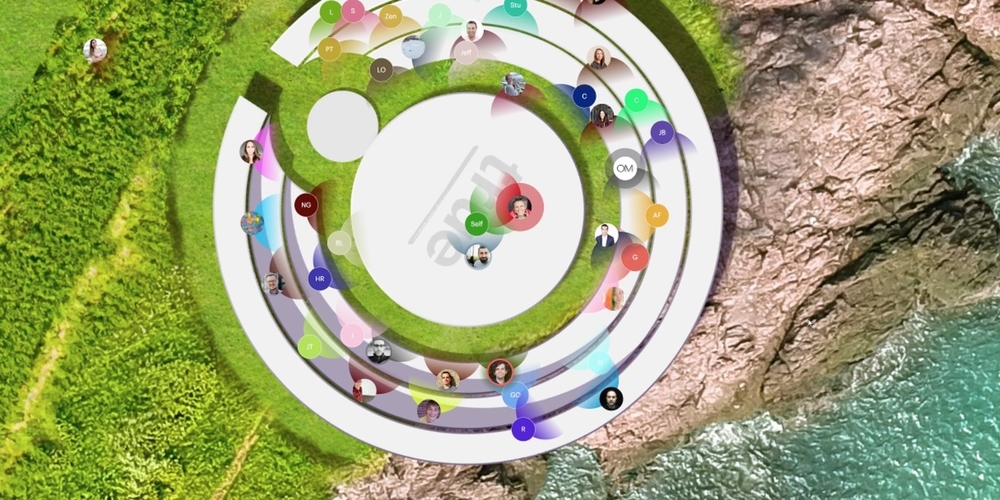Online Audio Spaces Update: New Features for Virtual Event Organizers
It’s been about 8 weeks since we launched High Fidelity’s new audio spaces in beta. We really appreciate all the support, particularly if you have ...
by Philip Rosedale
Cofounder + CEO
In the physical world, we prove our identity every day. We have passports, drivers’ licenses, debit cards, company IDs, birth certificates and social security numbers to prove we are who we say we are. We can prove that we’re old enough to enter a bar, that we have enough money to make a purchase, that we own something we want to sell or that we’re eligible to vote.
In the virtual world, identity is trickier. Who exactly are you online? What do you own? How much money do you have? What do your avatars look like? What sort of reputation do you have? On every service, and every platform, the answer is different.
Why shouldn’t your virtual identity travel with you? Instead of being splintered across multiple services, all your identifying information, all your assets could be stored on a blockchain, accessible on any platform.
Today, we’ve taken a big step toward making that vision a reality. High Fidelity and JanusVR have formed the Virtual Reality Blockchain Alliance (VRBA), a group dedicated to establishing a universal digital identity built on the blockchain and outside the control of any specific corporate entity.
As a member of VRBA, Janus will host a node of the High Fidelity blockchain and have the ability not just to read from the ledger but to register assets and record transactions on it as well.
What comes next is a glimpse into the future of virtual identity:
Portable identities: A public blockchain is the ideal platform to create a trusted, secure and verifiable identity.
As a member of VRBA, Janus will recognize avatar identities created in High Fidelity, and equally personas created within Janus will transfer to High Fidelity. Users of both services will be able to control what information they share or keep private for each experience and tailor how they present themselves. Together we’ll add more features to our identity platform to help build trust as people traverse VR.
Asset recognition: Content developers can already register their creations on the High Fidelity blockchain using our Digital Asset Registry (DAR), which tracks the provenance and ownership of each item. Soon High Fidelity users can bring their virtual goods to Janus, along with ownership rights — the precursor to avatars and property moving effortlessly from world to world.
Janus is also developing a Blockchain Explorer that will allow people to view and render their assets, regardless of which service they used to buy them. You’ll no longer have some of your stuff on one platform, some of it on another. It’s just your stuff, everywhere you go.
Virtual currency acceptance: High Fidelity Coin (HFC) is our cryptocurrency for peer-to-peer transactions and purchases on the High Fidelity Marketplace. Janus will soon support HFC in its digital wallet, meaning anyone will be able to purchase Janus content using HFC. We’re creating a kind of ‘HFC free-trade zone’ between all the virtual worlds on both platforms.
This is important because unlike other cryptocurrencies, HFC is optimized for commerce. One of the main obstacles to buying and selling on the blockchain is the speed of transactions. With Bitcoin and other popular cryptocurrencies, transactions can take minutes to complete. HFC transacts much faster. Building a network of signers not only federates the blockchain, it accelerates it, so you can finish a purchase in about the time to takes to buy something with a credit card in the real world.
And all that is just the beginning. We’re excited to form the Virtual Reality Blockchain Alliance with Janus, and we fully expect other like-minded partners to join over the coming weeks.
We believe people deserve control over their digital assets, their currency and their personal information. That knowledge, and that power, shouldn’t rest with corporations but individuals who can choose what they share, with whom. That’s not how it works in the physical world — at least not yet. In the virtual world, we have a chance to do things differently. It’s time to do it.
Related Article:

by Ashleigh Harris
Chief Marketing Officer
It’s been about 8 weeks since we launched High Fidelity’s new audio spaces in beta. We really appreciate all the support, particularly if you have ...
Subscribe now to be first to know what we're working on next.
By subscribing, you agree to the High Fidelity Terms of Service